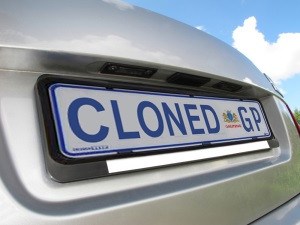
The traffic-intensive holiday season - which coincided with the kick-off of government's open-road tolling system in Gauteng - has drawn to a close and concerns from motorists around e-toll bills are increasing.
Amid confusion and disputes relating to the SA National Roads Agency's (Sanral's) billing system, another issue - that of cloned number plates - has been highlighted by some motorists, who will have to follow what has been described as an "onerous" administration process to clear their names.
One Facebook user says: "My mum can drive, yet doesn't ever. She doesn't have a car registered on her name either but received multiple messages regarding her outstanding e-toll fees. A friend of mine doesn't have a licence, doesn't drive and has never owned a car, but she also got SMSed fines to the amount of R3 000 for which she will be handed over to the lawyers."
Sanral has responded to the issue of false invoicing caused by cloned/false licence plate numbers by saying there is recourse for motorists via a process that can be followed through e-toll customer services; however, Opposition to Urban Tolling Alliance (Outa) chair Wayne Duvenage says this is unreasonable.
"The process motorists have to follow should they wish to dispute [e-toll transactions] is a very onerous one that involves affidavits, a commissioner of oaths and probably a number of weeks."
Duvenage says he is aware of a number of complaints stemming from false vehicle licence numbers (VLNs), "and it is a serious problem, because for a motorist to clear the bill from their name is not easy to do".
Protracted process
Sanral says e-toll transactions can be disputed through either a "nomination", or a "representation" process.
A dispute in the event of a suspected cloned/false number plate would fall under the latter. "A representation is when the responsibility for the payment of the e-toll transaction is being denied. An example of a representation would be if the e-toll transaction is for a vehicle that the user did not drive or own."
In order contest an e-toll bill on this basis, motorists need to firstly fill in and submit the two-page representation form available via Sanral's Web site, complete with the signature of a Commissioner of Oaths.
Sanral says motorists then need to furnish the roads agency with details of the specific e-toll transaction or transactions that are being disputed and submit a sworn affidavit and relevant supporting documentation together with this.
The said documentation can then either be physically submitted at an e-toll customer service centre, or sent by registered mail to: Violations Processing Centre (VPC), Private Bag X164, Centurion, 0046.
Sanral notes that no dispute will be considered once a final demand has been issued, and says an SMS will be sent to the applicant once it has received the forms, as well as when the dispute has been resolved.
"Until such time as the dispute has been processed successfully or, if the dispute is rejected, the applicant of the dispute is liable for the payment of the toll tariffs."
Countless clones
The Automobile Association (AA) estimates that as many as 10% of vehicles in Gauteng have false (incorrect or cloned) number plates. "Unfortunately, this behaviour exists, leaving you at risk of false claims against your name. According to Sanral's rules, it will be up to you to deal with the admin hassle of proving that your vehicle was not driven on their toll route," says the AA.
Duvenage says even before e-tolling started, indications were that there were scores of false number plates in circulation in Gauteng - a problem Sanral previously said would be allayed by e-tags. However, he says, "it is still a problem for motorists who are tagged and have their number plates cloned by a vehicle that is not, because they still have to go through the process of disputing the bill they will receive".
Howard Dembovsky, chairman of Justice Project SA (JPSA), is looking into the issue and says the prevalent lawlessness in SA cannot be disputed. "It is awfully ambitious for anyone to claim SA is anything like Australia or Europe, for example. Here, lawlessness is not something that happens from time to time - it is prevalent."
He says about 100 000 false number plates may be in circulation in Johannesburg alone. "The [SA] Number Plates Association estimates up to half the vehicles in Gauteng may be cloned."
According to Sanral: "As the e-tag is unique and linked to a specific VLN number, it helps to prevent fraud and the use of duplicate number plates."
However, Dembovsky disputes this. "The equipment required to clone an RFID device costs $500 and you can get it from [certain Web sites] that aren't exactly discriminating or ethical."
While Sanral had not responded to queries by the time of publication, spokesperson Vusi Mona recently said: "There is a process that can be followed through e-toll customer services, for those vehicle owners that suspect their vehicle licence plate number of being cloned. Additionally, there is a representation process that he or she can follow for any disputed transactions."
Share